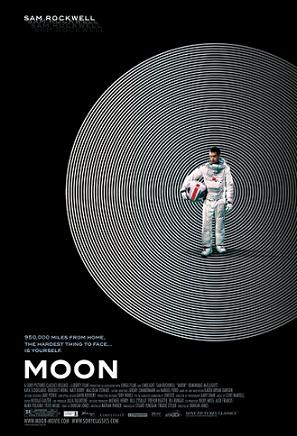A magazine where the digital world meets the real world.
On the web
- Home
- Browse by date
- Browse by topic
- Enter the maze
- Follow our blog
- Follow us on Twitter
- Resources for teachers
- Subscribe
In print
What is cs4fn?
- About us
- Contact us
- Partners
- Privacy and cookies
- Copyright and contributions
- Links to other fun sites
- Complete our questionnaire, give us feedback
Search:
Moon and Mind-Body Dualism
The least interesting thing about Duncan Jones right now is who his superstar father is. He has stepped out of the shadow with a vengeance in directing the coolest film of the summer: Moon. It premiered at Sundance to brilliant reviews and looks set to become a classic along the lines of the likes of Silent Running, Outland and 2001. If you are interested in artificial intelligence (which Jones obviously is) then you will undoubtedly love Moon.
What's most interesting about Duncan is that he finished off his degree in Philosophy by writing a dissertation on Artificial Intelligence. He obviously wasn't quite so in to snappy titles then as now though as he called it: "How to kill your computer friend: an investigation of the Mind / Body problem and how it relates to the hypothetical creation of a thinking machine."
What is the mind-body problem all about? Well, it's probably one of the deepest problems computer scientists, along with philosophers, psychologists and neurobiologists, are grappling with. Its roots date back at least as far as Plato and it has been keeping philosophers in business ever since. It boils down to the question of whether our mind is a physical thing or not, and if not how can our mind affect the physical world at all. Descartes believed they were separate but interacted through the pineal gland - a pea sized gland in the brain. (He was wrong about the pineal gland incidentally. It actually produces melatonin which amongst other things controls sleep patterns). Descartes also thought that only humans, not animals, had both pineal glands and minds (He was wrong about that too, though I'm being a bit harsh on him, making him sound like a bit of a tosser - he was pretty smart really, one of the greatest thinkers ever - honest.) A more interesting part of Descartes' theory of mind and body dualism is that he suggested that the body works like a machine. That is of course where computer scientists get interested.
Fascinating an argument as that over dualism is, it was all a bit, well philosophical, until computers became a practical reality that is. Suddenly it turned into an important question about what it is possible to engineer. Forget about the AI question of whether a computer can be intelligent. Dualism moves us on to worrying about whether a computer can ever have a mind. Could a computer ever become conscious and have a "self"? No one knows. No machine does either, right now.
After finishing his degree, Duncan actually flirted with studying for a PhD on Artificial Intelligence but packed it in to focus on film directing instead. He seems to have done an awful lot of searching for his "self" before finding his passion as a Director. Luckily for us though he has continued to explore the same philosophical themes in Moon.
It all concerns Sam Bell, who is left alone working at a base on the far side of the moon. He has only a robot called Gerty to keep him company on his three year stint. After an accident he comes across a doppelganger of himself. Is it the real him, or a clone the company have somehow created...? Is his "self" just losing the plot or is there more to his "self" than meets the eye?
Art as film can clearly be just as good a medium as a PhD thesis for exploring the philosophy of computation!
Oh and if you are really interested and haven't already heard from all the media fuss, we will leave you to Google who his father is for yourself. This may be the first article ever written about Duncan Jones that doesn't tell you!



